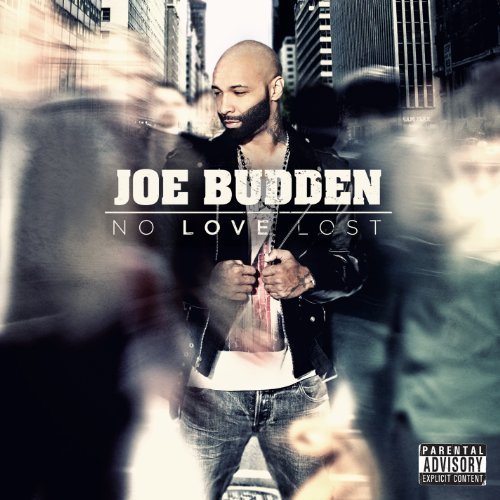Over a peppy, horn-laden Just Blaze beat fabricated from a vintage Kool & The Gang tune, an emergent Jersey City emcee erupted with buoyant youthful hubris about his sexual exploits and plans to change the rap game. With a DJ baiting radio-friendly hook, ‘Pump It Up’ marked Joe Budden’s big break into the hip-hop mainstream. His music and virtual personage was shoehorned by marketing geniuses into video games -including two different branded Def Jam vehicles – and Hollywood movies.
Of course, that was nearly a decade ago and Budden, having since been exhaustively pulverised by the music industry food processor, has yet to match that early success. In many ways, his story recalls that of countless others, with single-minded executives, shelved albums, a terminated major-label contract, and diminished indie label options. Yet Budden has willfully fought against the prescribed fade-away narrative affixed to other such one-hit rap wonders. Comprised of himself alongside fellow rap machine survivors Crooked I, Joell Ortiz, and Royce da 5’9”, the Slaughterhouse supergroup scored major points with last year’s Welcome to: Our House, a Shady / Interscope release that capitalised on the astoundingly indefatigable cachet of executive producer Eminem.
Still, Budden’s counterinsurgency has experienced more landmines than land victories. Accused of domestic violence, pursued for allegedly failing to pay child support, and even being detained over unpaid parking tickets, he has fallen into an all-too-familiar and oft destructive tabloid trap. Recent appearances on the third season of exploitative VH1 reality show Love & Hip-Hop haven’t done Budden any favors, nor has his potentially embarrassing public admission of "Molly addiction" during a decadent time of prevalent ecstasy usage in hip hop culture. Restraint and recovery, while arguably vital to his survival as a man, plays poorly to his status in a rap game where keeping up appearances matters more than one’s lyrical acumen.
Perhaps his serotonin summer helps explain some of the hyper-sexual content of his latest full-length No Love Lost. Though most contemporary rappers grandstand and bloviate about their coital accomplishments, Budden comes across downright fixated on carnal matters, the eager player of ‘Pump It Up’ having mutated into some sort of would-be lothario. After a cursory affirmation on the intro, ‘Top Of The World’ kicks in with unfiltered talk of strip clubs and dalliances with bisexual women. Frequently, he both hints at and describes a pornographic life with pride. Such prurient boasting makes love songs like ‘You And I’ feel dishonest and almost predatory. By the time ‘Switch Positions’ comes in with Omarion’s practiced coo, there’s no longer any ambiguity as to No Love Lost‘s intended audience. Still, Budden occasionally takes his mind out the gutter long enough share some of his pain (‘All In My Head’, ‘Runaway’), though after rubbing up against so much sleaze one might suspect much of this qualifies as sociopathic narcissism.
Even without the cushy padding of Welcome to: Our House‘s clutch of Alex da Kid, AraabMuzik, and Hit-Boy beats, No Love Lost predictably sounds an awful lot like everything else on the radio. A seemingly sound strategy, to be sure, but Budden’s lack of a distinct voice finds him playing second fiddle to instrumentals and abundant guest appearances. His album lives and dies by the performances of people other than him, a risky prospect. Lil Wayne’s ever-lascivious limericks on lead single ‘She Don’t Put It Down’ eclipses Budden’s comparatively boorish verse, a problem further compounded by hitmaking producer T-Minus’ vivid synth swirls. Boi-1da, one of the producers behind Drake’s success, succeeds that track immediately with ‘NBA’, with Wiz Khalifa inexplicably tackling the first verse.
Budden’s Slaughterhouse associates dutifully enter and leave, inadvertently ushering in No Love Lost‘s middling second half. Gorged on hackneyed R&B slinkiness and moody muzak, this ultimately ensures that the record won’t do much to reboot his tempestuous career, all of the light and hope of ‘Pump It Up’ extinguishing in the suffocating atmosphere of a characteristically self-centered outro.


